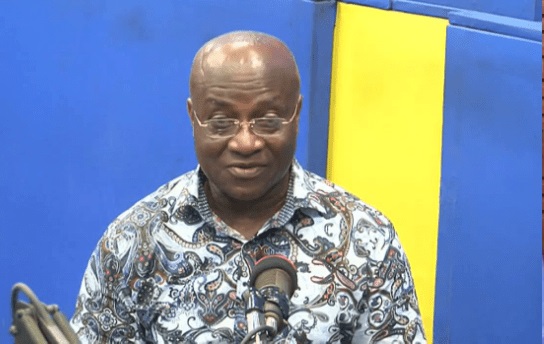Osei Kyei-Mensah-Bonsu
Majority Leader, Osei Kyei-Mensah-Bonsu, has urged the nation’s educational institutions to instill in the youth the principles and ideals of democracy so that they will be patriotic citizens and uphold it.
He also wants institutions of governance to deepen citizens’ understanding of Parliament’s mandate in order to gain the Ghanaian people’s support in carrying out its mandate.
The Majority Leader stated in Parliament during the launch of the House’s 30th anniversary celebration of parliamentary democracy that, Parliament had already begun strengthening its public engagement in order to bring it closer to the people.
According to him, the Ghanaian Parliament is the most highly ranked open parliament in Sub-Saharan Africa.
“The role of Parliament and the functions of parliamentarians, including representation, deliberation, information dissemination, legislation, financial control (power-of-purse), oversight, ratification of agreements, including loans, must be highlighted and explained continuously to disabuse the minds of our citizens that Members of Parliament (MPs) can do everything under the sun,” he noted.
He stated that this would undoubtedly encourage the development of career MPs, rather than members who would enter Parliament with the sole intention of using Parliament as a stepping stone to gain entry into the executive.
“Whilst we are at this, it is important to admit that some of the defects in our performance are attributable to self-inflicted impositions contained in our Standing Orders. We have for over 20 years been working on a review process,” he asserted.
For him, the time has arrived as Parliament celebrates 30 years to bring the review exercise to a conclusion.
He asserted that, while Ghana’s 30 years of parliamentary democracy are relatively new in comparison to other jurisdictions such as the United Kingdom and the United States of America, which have been practicing democracy for over 200 years, it is worthwhile to pause, reflect, and celebrate.
He claimed that Ghanaians would be acting like ostriches if they continued to claim that the justifications, real or imagined, for which military juntas intervened in the country’s governance had been completely eradicated.
“Neither can we also claim that our aspirations as enshrined in the 1992 Constitution have been achieved in their entirety,” he disclosed.
However, he argued that the country has made significant progress, adding, “Our country, 30 years into the 4th Republic, is still grappling with issues of poverty, youth unemployment, chieftaincy conflicts, economic hardships, vigilantism, insecurity in all forms, and corruption in public life.”
Mr. Kyei-Mensah-Bonsu stated that the challenges emphasised the need for a review of the 1992 Constitution by various stakeholders.
“It is time to re-engineer our constitutional architecture to conform to today’s realities. We need a constitutional order that frowns upon winner-takes-all syndrome and promotes collaboration, collectiveness and consensus building in decision making at all levels of governance.
“We need a constitutional order that will ensure gender equity and, in many respects, equality to promote real development. The IPU has resolved that by 2025 all Parliaments in the world must comprise at least 30% of women,” he suggested.
According to him, Ghana requires a new constitution that will reduce winner-take-all politics and the do-or-die combat associated with elections, as well as the constant increase in the number of seats in Parliament.
“We need a new constitutional order that will put a cap on the numbers of Ministers of State, etc. A new order that will ensure that the Speaker of the Parliament is a serving member of Parliament and that the Parliament of Ghana does not remain as one of only 9 Parliaments in the world whose Speakers are not Members of Parliament,” he added.
By Ernest Kofi Adu, Parliament House


